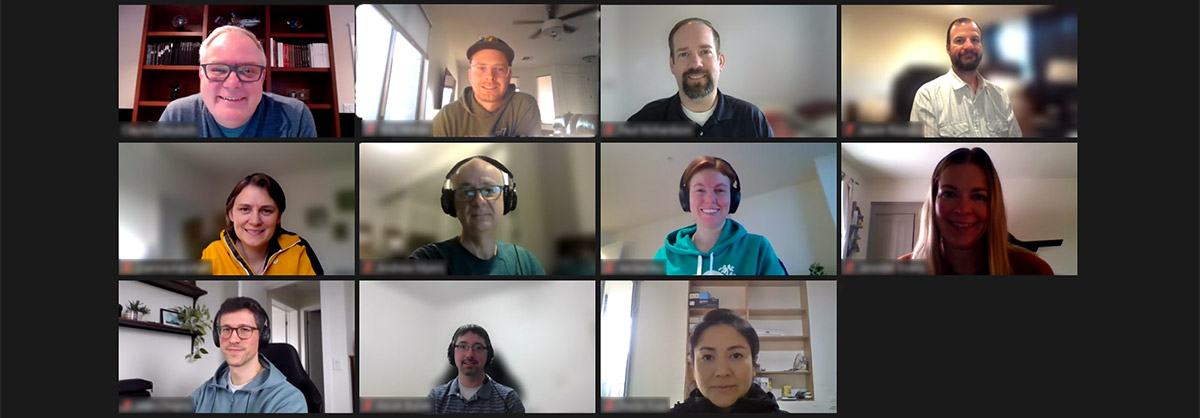March 2022 Issue Index
Advanced geostatistics training
Maptek invests in the next generation of resource modellers and helps technical staff polish their skills by regularly hosting advanced geostatistical training.
Geostatistical methods
Maptek invests in helping the next generation of resource modellers, partnering with Dr Clayton Deutsch, Professor and Director of the School of Mining and Petroleum Engineering, Department of Civil and Environmental Engineering at the University of Alberta.
For several decades Dr Deutsch has been teaching and conducting research around the geostatistical methods applied to resource estimation and grade control.
In a long-standing partnership, Maptek hosts the sessions and provides Maptek Vulcan software and technical support throughout the course, which explores theoretical and practical aspects of applied geostatistics.
The 2021-22 four-week courses were fully remote and attracted 35 students. Maptek and Dr Deutsch worked together prior, during and after each session to explore ways to cultivate an engaging interactive virtual learning environment.
The Maptek team is eager to continue offering professional development opportunities for technical staff to explore practical applications of geostatistical theory to challenging industry problems.
Due to increased interest the course was hosted by North America twice in 2021, and other regions will also be hosting in 2022.
Practical insights
Paul Richardson, Senior Geologist in Maptek North America and Andrew Myers, Chief Software Engineer in Maptek Australia were able to participate in the course from opposite sides of the globe.
We asked them for feedback on the course, considering their different backgrounds.
Why is it important for Maptek staff to take part?
‘We offer our customers the tools to do their work. It’s also important to learn these tools ourselves so we can support them. The industry is continually evolving and we need to evolve with it,’ said Richardson.
Myers echoed the importance of understanding what’s happening under the hood of the software.
‘I don’t have a geology background, but have been around Maptek long enough to pick up the basics. As I get more involved with DomainMCF I need to be able to frame it within the geostatistics world that people are familiar with,’ added Myers.
‘Learning from a teacher who has written books on the topic was so much better than attempting to learn from a book in my spare time, and trying to fit it between other tasks. And in my case, taking lectures at 2am was the ultimate distraction free environment.’
Did you learn anything surprising?
‘Even though I have been a resource geologist for many years, there’s a lot I don’t know and many tools that can help me be better at what I do,’ commented Richardson.
‘I now appreciate how much work goes into preparing a grade model in terms of the number of decisions, the checking, the alternatives to explore and all the rules of thumb that come with experience,’ said Myers.
‘It was also surprising to learn that although techniques such as kriging have been around for 50 years, more modern approaches using simulation have evolved during the time I’ve been at Maptek.’
How does that make you feel about the jobs our customers need to do?
‘As leaders in mining software, it’s our job to help customers utilise the right tools for their individual needs. Firstly, we need to understand what they want to accomplish, and then propose tools and workflows to help them succeed,’ said Richardson.
‘As Maptek commercialises new geology tools using new techniques it’s important to be able to explain them in context. I now have a new set of data analysis tools to objectively measure how well the machine learning systems work and to improve the modelling to give the desired results,’ said Myers.
‘With my programmer hat on, I now appreciate the effort that goes into the Vulcan tools to make sure they perform as expected in a wide range of tasks,’ concluded Myers.

